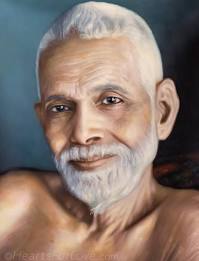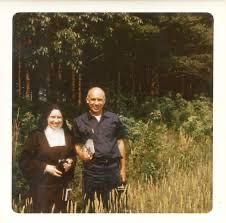
God is the ultimate “I” Who is the Self of every self!
Thomas Merton may be the most prominent Christian writer of the 20th century. He was a mystic writer, and he received a little pushback from traditional Catholics because he was close with men of all faiths and his writings reflected it. He lived alone in a little shed at the Abbey of Gethsemani in Kentucky and wrote many books, including his autobiography, the best-selling “The Seven Storey Mountain”. He was in Thailand visiting the Dalai Lama just weeks before he died in 1968. He was also very good friends with the Vietnamese Zen Buddhist monk and author Thích Nhất Hạnh. Merton was once an atheist and became a Catholic priest after attending Oxford. He became a priest after going through what he called his spiritual experience. The title of his autobiography is taken from Dante’s Inferno, which is the classic 13th century poet’s story of climbing the Seven Deadly Sins and rising out of hell to purgatory and finally up to heaven. The great Bob Dylan referred to Dante in his amazing song “Tangled Up in Blue.”
Here are the lyrics from the great master Bob Dylan:
“Then she opened up a book of poems
And handed it to me
Written by an Italian poet
From the thirteenth century
And every one of them words rang true
And glowed like burning coal
Pouring off of every page
Like it was written in my soul from me to you
Tangled up in blue”
Here is what the wonderful Thomas Merton had to say about Sri Ramana Maharshi, the perfect Brahman:
Excerpt From “A Year with Thomas Merton” JULY 26
“The Real Thing”
I am very impressed and deeply moved by Ramana Maharshi: not only his life (of which I know only the bare outline) but his doctrine—traditional Advaita—or rather, his experience. Whatever may be the deficiencies of the doctrinal elaboration, and the misleading effect of some of the philosophical concepts, this is the basic experience: God is the ultimate “I” Who is the Self of every self! It is this that Christianity too expresses in and through the doctrines of grace, redemption, Incarnation, Trinity. Sons in the Son by grace, we recognize the Father as Him with Whom we are one—not by nature but by His Gift. But the impact of Maharshi’s experience awakens in us the real depth of this truth, and the love that springs from it. How powerless most Christian writing and teaching is today, in this respect! How lost, how far off the real target! The words are there, the doctrine is there, but the realization is absent. Maharshi has an inadequate doctrine, perhaps, but the real realization.(1)
(1) originally written by Merton on July 23, 1964
Jesus said: “Split a piece of wood and I am there. Lift up a stone and you will find me”. (Gospel of Thomas 77)


